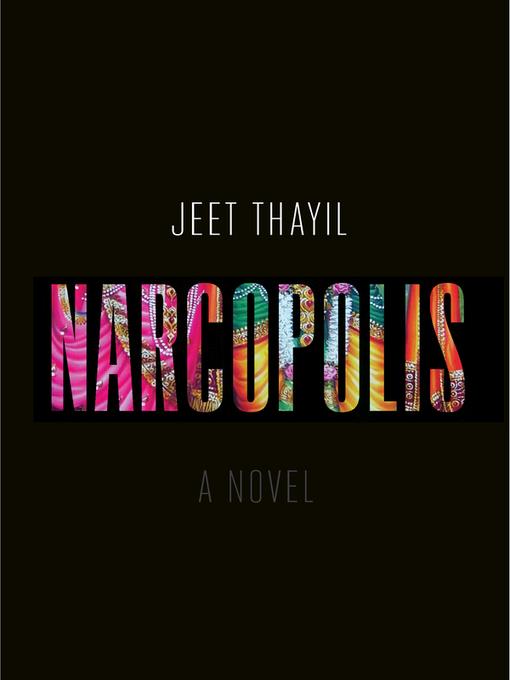
Narcopolis
کتاب های مرتبط
- اطلاعات
- نقد و بررسی
- دیدگاه کاربران
نقد و بررسی

Starred review from February 20, 2012
A vibrantly squalid yet glamorous Bombay of the 1970s emerges as the main character in poet Thayil’s debut novel. An unnamed narrator wanders through the sweltering Indian underworld of opium dens with odd characters like the intellectually ravenous eunuch, Dimple; and Newton Xavier, a renowned visiting poet and painter. Offbeat character portraits and compelling philosophical discussions form the bulk of the book. The narrator eventually recedes from the story, but returns 25 years later to bookend the novel. In between, the focus shifts to Mr. Lee, a Chinese entrepreneur and frequenter of brothels. Mr. Lee’s eventual rise to affluence serves as a parallel to the journey of the city itself. When the narrator moves back in 2004, though heroin has superseded opium as the drug of choice (resulting in an even seamier underground), he finds that Bombay has become Mumbai, an international metropolis. Thayil’s precision and economy distill what could be a sprawling and uneven saga into an elegant tapestry of beautifully observed characters and their complex lives. Agent: David Godwin, David Godwin Associates.

Starred review from November 15, 2012
A tightly packed saga, shortlisted for the Man Booker Prize, of drug-ruled lives in the back streets of Mumbai, which longtime resident (and former addict) Thayil insists on calling Bombay. Do not call him Ishmael, though he is a castoff and exile. Of the narrator of this descent into the subcontinental demimonde, we know little, at least at first: A disembodied voice says, "since I'm the one telling it and you don't know who I am, let me say that we'll get to the who of it but not right now...these are nighttime tales that vanish in sunlight, like vampire dust." Very well, then. The vampires in question are the denizens of opium dens and brothels in the megacity's back alleys, along roads choked with feces and animal corpses, with the "poor and deranged." The time is the 1970s, drifting into later decades, and the narrative spotlight soon falls on one such resident, Dimple, a girlish eunuch who, having grown up in a brothel, is now both a prostitute and a sort of moral center; more important, Dimple expertly packs the opium pipes that are consumed in Rashid's den, sucked up by an avid clientele. As time goes on, the cast of characters enlarges: One of particular interest is a Chinese exile, Mr. Lee, who has had a dangerous falling out with a prominent leader back home but wants nothing more than to return there, whether alive or otherwise. As time goes on, too, pipes give way to needles, and the city changes its tenor as the drug diet changes, never for the good. Asks Dimple: "Tell me why Chemical is freely available when there are no tomatoes in the market." The answer: "Because...the city belongs to the politicians and the crooks and some of the politicians are more crooked than the most crooked of the crooks." Few come into that dark corner of the world willingly, Thayil lets us know, and few ever leave. Lyrical, poignant and pensive; challenging for its abundant Indian-isms ("She told only one girak that she was leaving, a pocket maar who always smoked at her station.") but also for its moral bleakness.
COPYRIGHT(2012) Kirkus Reviews, ALL RIGHTS RESERVED.

November 1, 2011
Opening in late 1970s Bombay, Thayil's debut novel features a visitor from New York who's entranced with the city's underworld, particularly an opium den and brothel. Yet the characters--and the author--still look for beauty. A poet, performance artist, and musician/songwriter, Thayil should write piercingly (I love it when poets write fiction), and he eschews saffron and temple bells for a more broadly cosmopolitan voice. An intriguing possibility for smart readers.
Copyright 2011 Library Journal, LLC Used with permission.

























دیدگاه کاربران